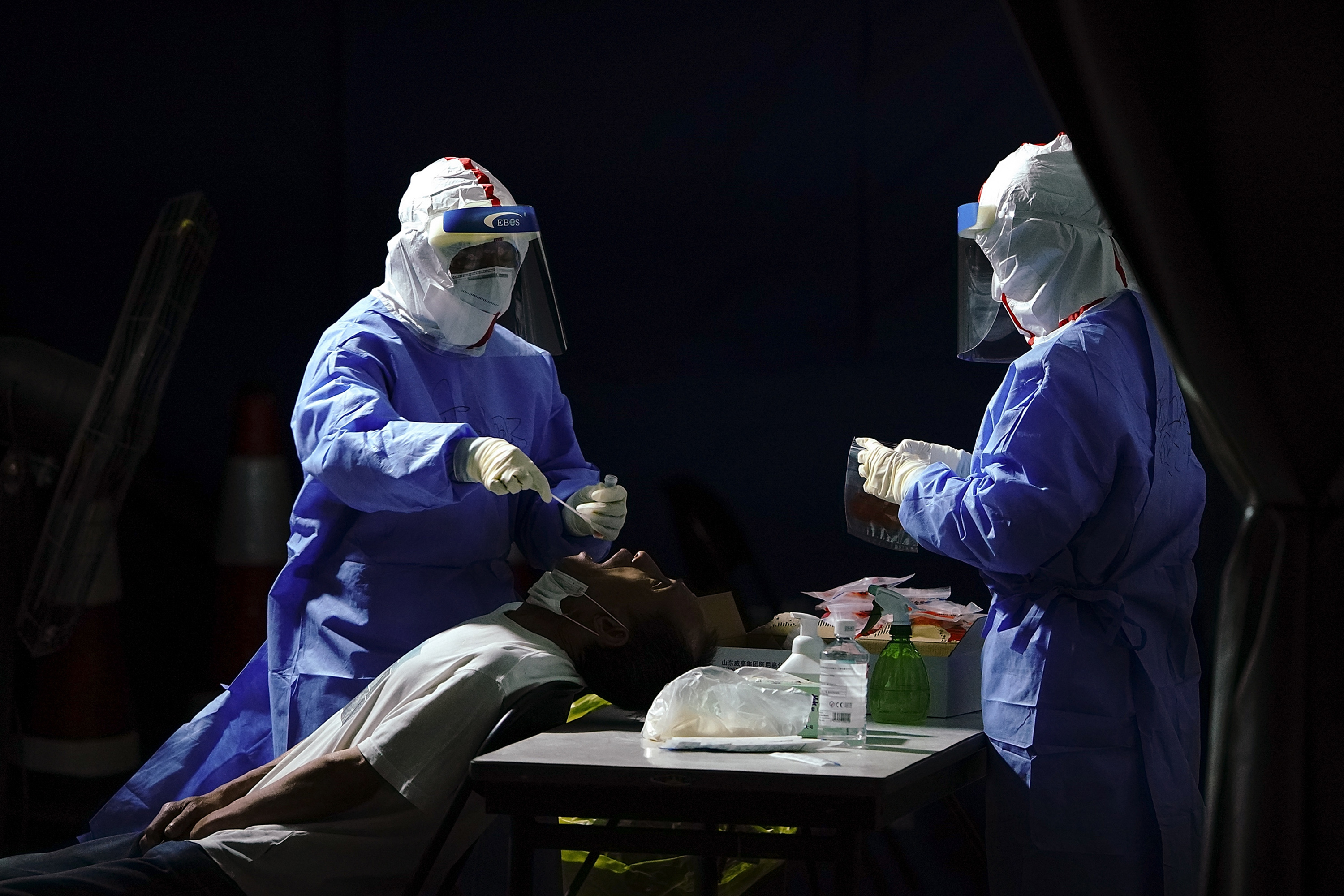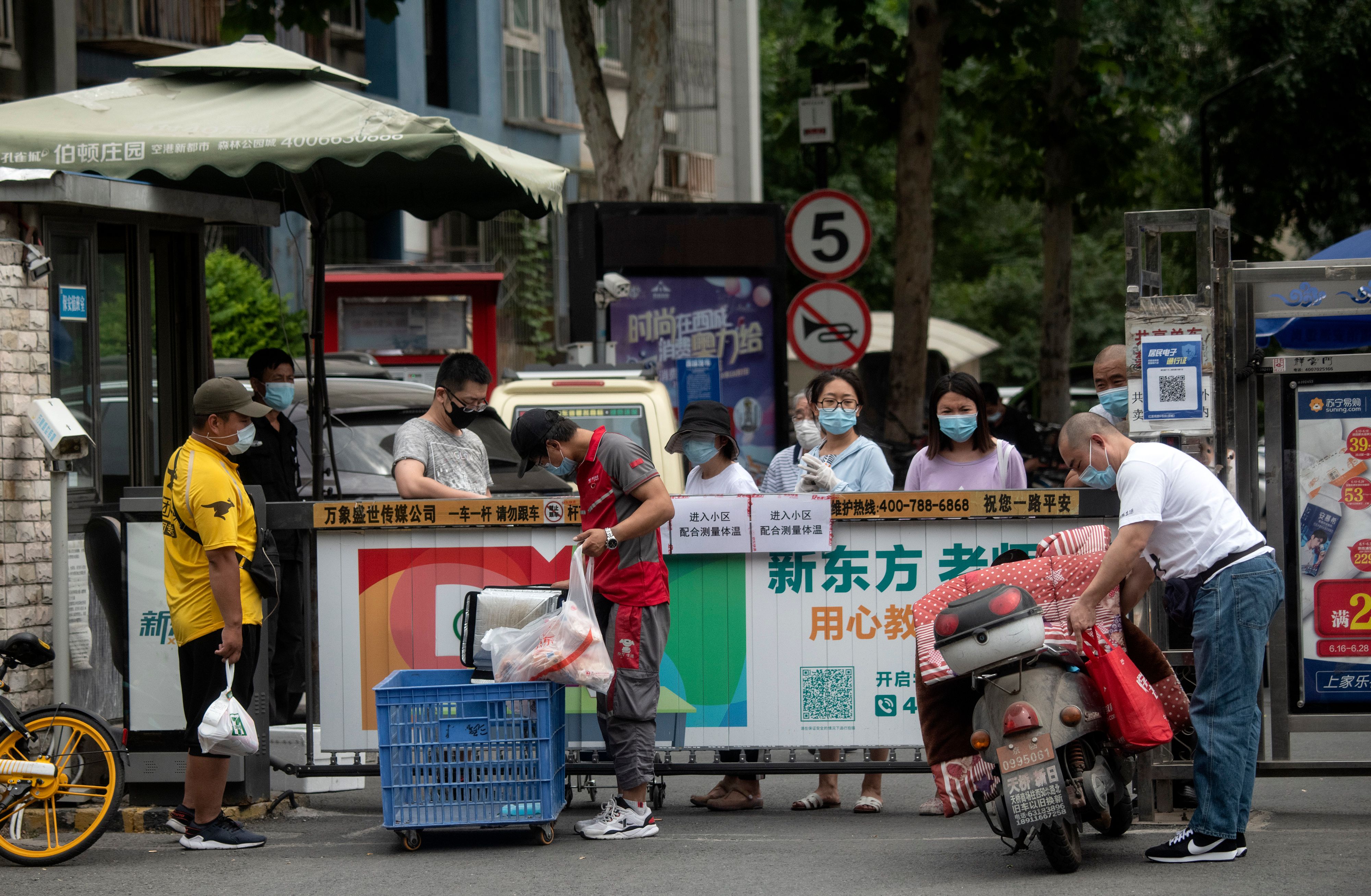China has found significant traces of coronavirus in a Beijing meat and seafood market which has been linked back to a resurgence of infections, Reuters reported.
Beijing reimposed some of its restrictions after a new cluster of coronavirus cases emerged, infecting more than 100 people. The cases were traced back to the huge Xinfadi market, where a preliminary report says the meat and seafood sections are severely contaminated with the virus, according to Reuters.

A nurse wearing a protective suit and mask takes a nucleic acid test for COVID-19 from a person who either visited or lives near the Xinfadi Market at a testing facility at a Sport Center on June 17, 2020 in Beijing, China. The authorities in Beijing have begun an operation to contain a potential second wave of coronavirus after 137 new cases were detected, the most in nine weeks. (Photo by Lintao Zhang/Getty Images)
Many of the infected people work at the market in the meat and seafood sections; others work in the beef and mutton sections. The low temperatures at the market paired with high humidity could be the reasons seafood markets are a source of outbreaks, Wu Zunyou, chief epidemiologist at the Chinese Center for Disease Control and Prevention, said at a Thursday briefing. (RELATED:Beijing Deploys War-Like Measures Amid Coronavirus Outbreak Tied To A Huge Market Place)
The Xinfadi market supplies 80% of Beijing’s meat and vegetables, according to Nikkei Asian Review.

People wearing face masks wait for the delivery of goods they ordered online in a residential area in Xicheng district which is under lockdown after a new COVID-19 coronavirus outbreak near the closed Xinfadi Market in Beijing on June 17, 2020. (Photo by NOEL CELIS/AFP via Getty Images)
Beijing’s city government ordered the closing of all schools and restricted travel between provinces to contain the spread, in addition to locking down residential compounds in high-risk areas. In order to trace the nearly 200,000 people who were exposed to the market, 100,000 community workers were dispatched.
Roughly 40% of flights in and out of China’s capital were also canceled Tuesday.
“The epidemic is a mirror that not only reflects the dirty and messy aspects of wholesale markets but also their low level management conditions,” the Central Commission for Discipline Inspection said, according to Nikkei Asian Review.


